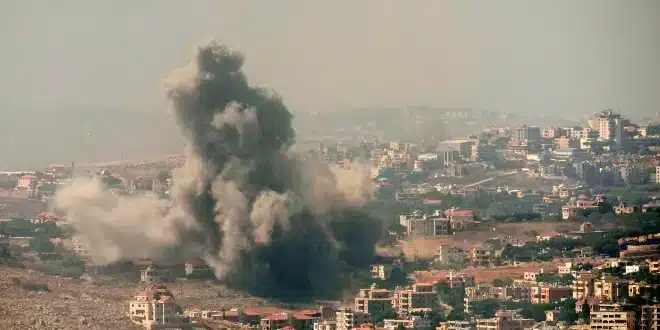According to Israel’s Yedioth Ahronoth newspaper, senior Israeli officials report that cease-fire negotiations with Lebanon are in “advanced stages.” White House envoy Amos Hochstein may soon visit Israel and Lebanon ahead of the U.S. presidential election on November 5 to finalize terms.
If discussions progress, the Israeli army plans to withdraw most of its troops, redeploying only in southern Lebanon locations of “tactical significance” after addressing the threat posed by Hezbollah’s Radwan forces. Israeli officials noted that Lebanon’s stance has “completely shifted” following Israel’s offensive, with Beirut reportedly agreeing to separate the conflicts in Lebanon and Gaza.
The officials emphasized that fighting would persist while negotiations proceed. Western intelligence sources suggest that Iran may permit, or even encourage, Hezbollah to agree to a cease-fire regardless of the situation in Gaza.
Under the proposed agreement, a 60-day acclimation period would commence during which Hezbollah and the Israeli army would halt fire. The Lebanese Army would also deploy in the south, with consideration given to establishing a new oversight mechanism, though no new U.N. Security Council resolution would be passed.
French and American officials highlighted Hezbollah’s recent losses in leadership and personnel, calling the present circumstances a “unique opportunity.”
The draft deal between Israel, Lebanon, the U.S., and additional partners consists of three main elements:
- Expanded Implementation of U.N. Resolution 1701: Passed after the 2006 Lebanon War, this resolution mandates no Hezbollah fighters south of the Litani River, especially near Israel’s Metula settlement. Lebanon’s army would deploy 5,000-10,000 troops along the border, and UNIFIL forces may be expanded with possible replacements from France, Britain, and Germany.
- International Oversight Mechanism: An international body would be established to monitor compliance and assess any reported violations. The U.S. agreed that, should Hezbollah build fortifications south of the Litani and the Lebanese Army or UNIFIL fail to address it, Israel could take decisive action. Israel has also requested a formal letter from U.S. President Joe Biden affirming Israel’s right to self-defense.
- Preventing Hezbollah’s Re-arming: Measures would be taken to block Hezbollah from importing banned weaponry by air, land, or sea. Russia has offered to help enforce the agreement, potentially playing a stabilizing role in Lebanon and Syria. Israel is engaging with Russia to reduce dependence on U.S. involvement, believing Russian participation could strengthen the agreement’s enforcement.
Prime Minister Netanyahu’s envoys have been enlisting other countries for oversight roles in the agreement, with Strategic Affairs Minister Ron Dermer collaborating with U.S. National Security Advisor Jake Sullivan, and Defense Minister Yoav Gallant discussing the terms with Hochstein.
Netanyahu’s office denied a Channel 12 report claiming Israel and the U.S. discussed limiting Israel’s ground operations in Lebanon in exchange for future support from the White House to prevent Hezbollah’s re-arming. However, sources told The Times of Israel that Netanyahu aims to conclude the conflict in Lebanon with an arrangement ensuring Hezbollah’s withdrawal from southern Lebanon.


